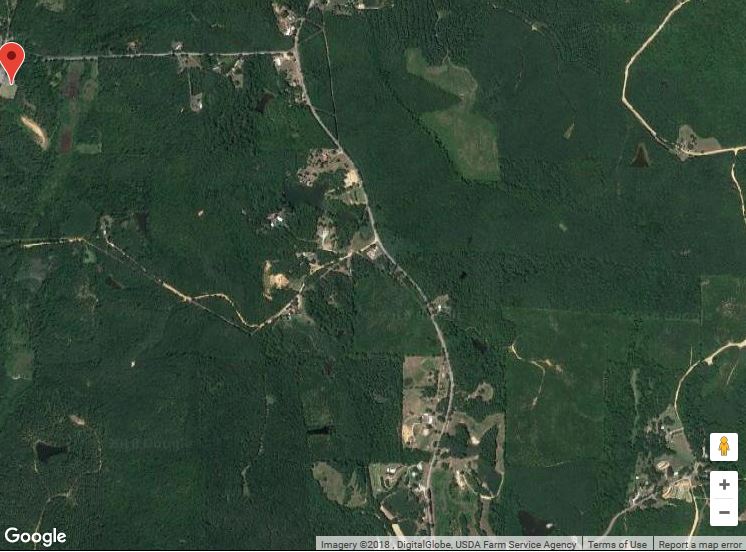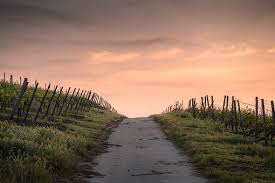That’s important to remember, because you have to imagine yourself walking in the country—woods, really—for at least that long, or longer, on a summer afternoon and evening, and you’d be on a dirt road, by the way, not the paved one that goes through the area now, so dust would wisp up around your feet, and there wouldn’t be much noise.
Country people in the late 1920’s and 1930’s in Mississippi were used to walking, even walking at night, when the distance wasn’t too great. And three or so miles wasn’t a great distance.
So a few young Alawines had gone to visit friends one day. The group included my dad Bob and a couple of sisters, maybe one or two other people. They were going to be after dark getting back; but, again, being raised in the country, this would’ve been a pretty typical evening walk as they ambled eastward towards Alawine Springs.
Maybe they were talking, maybe laughing. Maybe the guys along were trying to make the young women jumpy as dusk approached; maybe not. They approached the crossroads now marked as 4306 and 298. By that time it was almost completely dark.
When I was told this story years ago, I didn’t think to ask whether there was a full moon, or any moon; whether it was fall or summer. Reflecting about it now, I’d hope it wasn’t winter, because I personally wouldn’t want to be out on a dirt road for a three-mile-plus walk in the cold. So let’s just say it was a balmy late summer evening.
So imagine yourself in the moment:
 |
| Antioch Baptist Church and cemetery, Neshoba County MS |
But you shuffle on past anyway, and then you hear it, and the hair on your arms lifts: piano music, coming out of the church. The church is dark, no lights. No wagons or Model T’s in the yard. Only a white-painted church on the isolated road, with music emanating from the closed windows and door…
 |
| worldartswe.com |
 |
| DeSoto State Park, Alabama |
“Yeah, sure, you’re too scared to do that; you’re not gonna jump!”
“Yes, I am, just watch; I’m gonna jump in 30 seconds..”
“You’re not gonna jump—go on, prove it, jump!”
—And none of them did. It’s a LONG way down DeSoto Falls, and even teenage boys can’t be idiots all the time. But the dare ritual went on for excrutiatingly long minutes, while we waders watched and wondered what would ultimately happen. And, ultimately, nothing did.
But this was what I was told happened that night in Kemper County: As the music continued in the dark church, the Alawine group froze in their tracks. The women in the bunch whispered that it was time to get out of there. The young men, being young men, threatened to go and explore, go open that door and see who was in there, or who wasn’t, find out what was going on, or not. The girls begged them not to. The minutes passed, and the girls won out. (In the map below, Antioch is the red marker at the left. Alawine Springs is the little white dot on the road on the right side of the map, just above the yellow guy.)
I’m sure the boys were bluffing as they continued homeward: They’d CERTAINLY have gone in, if those silly girls hadn’t kept them from doing it. So their pride was saved, and the girls’ fear (and the boys’!) was soothed.
Now, let me say this up front: I don’t believe in “ghosts” per se. I’m not sure my daddy did, either; he certainly added that probably somebody was in the church just trying to scare them. (Yeah…a good pianist…in the dark…) I do believe there are many things we don’t understand completely. I myself have sometimes had disturbing flashes—pictures, or something like a second or two of a film clip—of things that haven’t happened, and usually within less than 24 hours, I read about them on the Internet. This happens so much that my daughters have sometimes asked me if I knew about THAT one before it occurred. Alas, I don’t have a choice about which things I “see”—and I don’t appear able to turn the film clips “on” at convenient times. I’d just as soon not have this “ability.”
But Daddy had no real explanation for that evening. The group hurried past the church and arrived home at Alawine Springs in the dark. He remembered and told me and Jack the story when he was in his late 50’s.
Whenever you get the chance, if you’re driving in that area, try to arrive at the crossroads at dusk. Squint your eyes and envision the road as dirt, and look at the graves off to your right, and imagine music tinkling out of the old white church, and think of feeling your courage draining as your spine tingles.
I’m including here a link to a great page about Antioch on Mississippi GenWeb. It has information about the old building and the graveyard. Enjoy!
Ælfwine








































